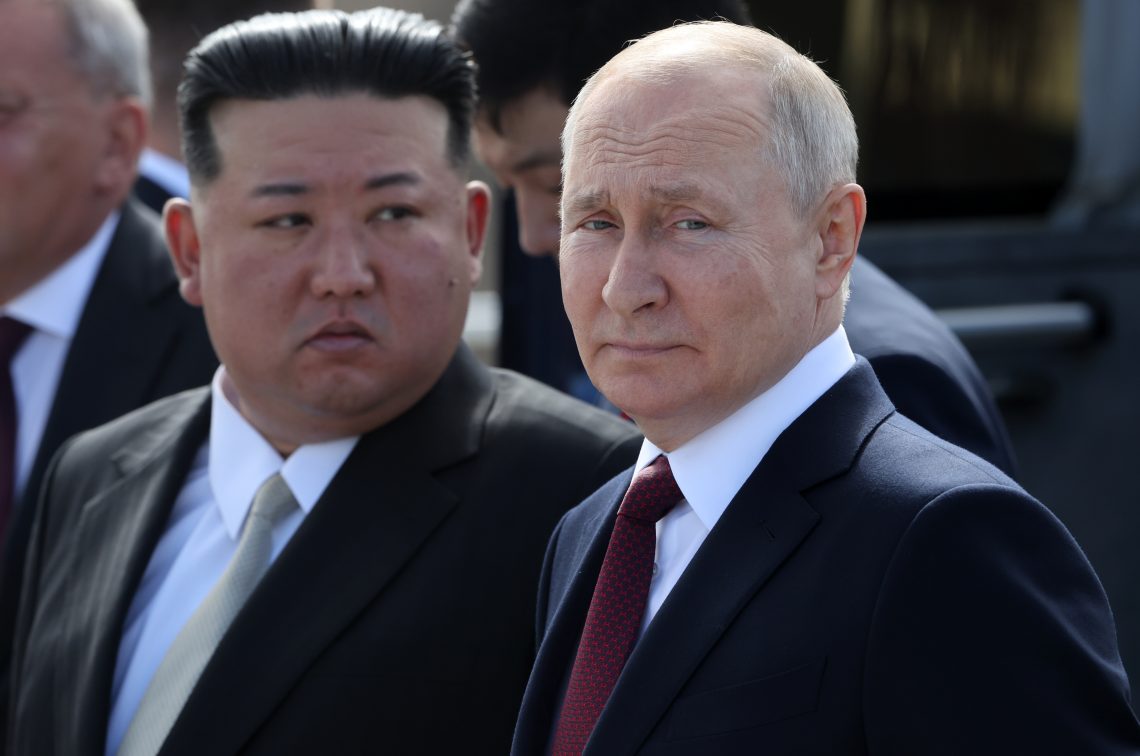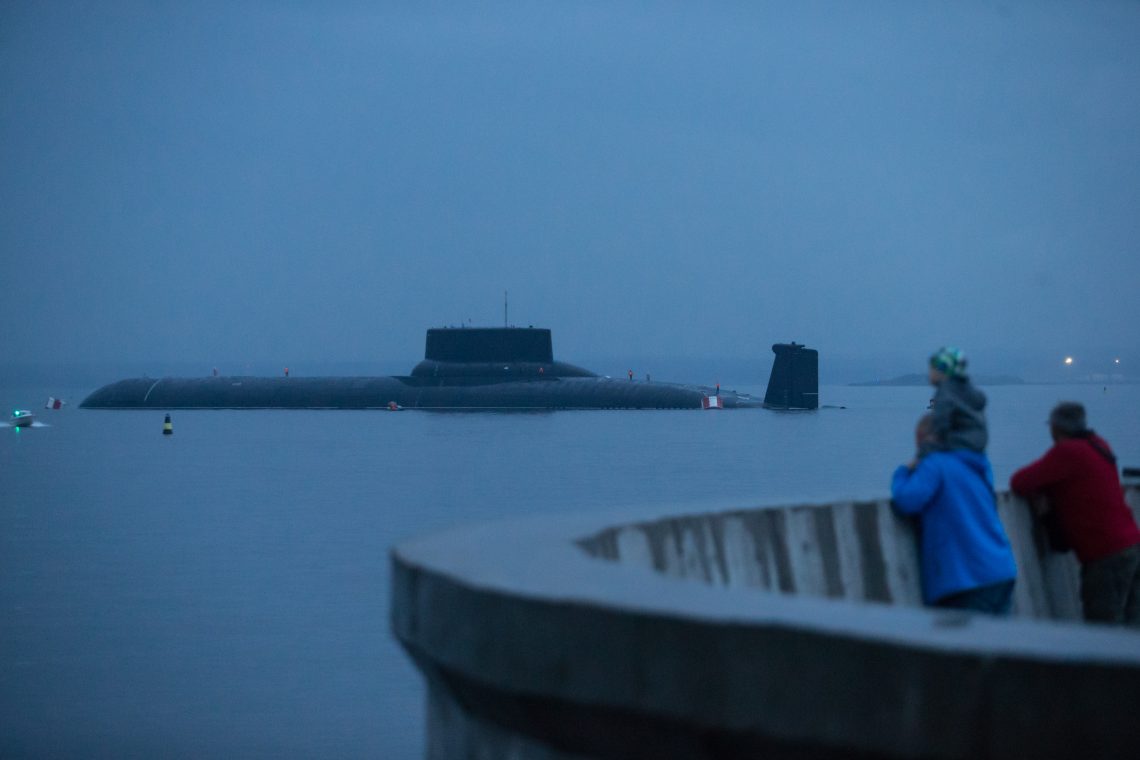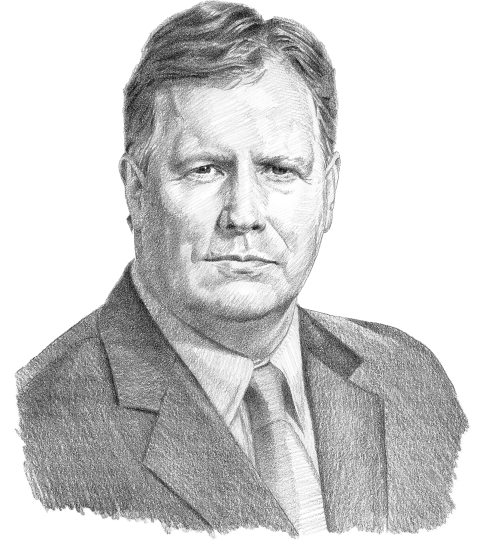Russia and North Korea: Similar bed, different dreams
Russia and North Korea have grown closer amid the war in Ukraine, but the partnership will likely remain transactional and businesslike.

In a nutshell
- Russia’s invasion of Ukraine made the relationship with North Korea more relevant
- Pyongyang seeks military, economic and diplomatic aid from the Kremlin
- Both sides have reasons to stop short of a permanent, full-fledged embrace
In an era of great power competition, foreign policy analysts have become consumed with the “dating habits” of key countries and how they might alter the balance of political, economic or military influence.
Rarely does a week go by without a new headline on the blossoming “love affair” between Moscow and Beijing and on what their closer ties would mean for the existing international order. Much less glamorous – but arguably more consequential and concerning in the short term – are reports of growing bonds between the Russian Federation and the Democratic People’s Republic of Korea (North Korea, or DPRK).
Before looking at the present state and future of the Moscow-Pyongyang relationship, let us take a brief look at the past.
History of ties
Russian/Soviet relations with North Korea go back to the end of World War II after the Japanese surrender in 1945 and the relinquishing of its control of Korea, which Japan began to annex following the 1904-1905 Russo-Japanese War. In the early post-World War II period, the Korean Peninsula was divided at the 38th parallel north between American and Soviet forces.
With the onset of the Cold War, diplomatic efforts (including at the newly formed United Nations) to create a unified Korean state failed, leaving the country divided. In 1948, while the southern part conducted democratic elections under American supervision, the north was consolidated under the political control of the Soviet-backed communists.
That same year, the Soviet-supported DPRK was established north of the 38th parallel with its capital in Pyongyang, under Premier (later President) Kim Il-sung (1948-1994). The United States-backed Republic of Korea, commonly known as South Korea, was established south of the 38th parallel with its capital in Seoul, under President Syngman Rhee (1948-1960). With Soviet General Secretary Joseph Stalin’s reluctant approval and with promises of military assistance from the newly formed, communist People’s Republic of China under Chairman Mao Zedong, Kim Il-sung’s forces invaded South Korea in June 1950 in a surprise attack.
The Soviet Union trained, equipped and provided military support to North Korean (and Chinese) forces during the Korean War, which ended in an armistice in 1953, shortly after Stalin’s death. The Cold War in Asia had begun in full and would be a feature of the geostrategic landscape for decades to come.
More from Peter Brookes
Geopolitical wrangling over Iran’s nuclear program
Moscow continued to support Pyongyang after the Korean War and into the 1960s, but the relationship cooled considerably due to the political purge of perceived Soviet-friendly cadres within the Workers’ Party of (North) Korea, concerns over Soviet ideological revisionism, and more balanced ties with Beijing. In the 1970s, with the Sino-Soviet split still festering, Pyongyang looked to leverage its ties with Moscow for support. It also sought to demonstrate its independence through Juche, the North Korean state ideology of self-reliance.
With the end of the Cold War approaching, Russia began to slow financial and military aid to North Korea due to its own domestic political debates, economic challenges and significant changes in its foreign policy, including an opening of diplomatic ties with South Korea. In the wake of these and other events, the Treaty of Friendship, Cooperation and Mutual Assistance – which Premier Nikita Khrushchev and Kim Il-sung signed in 1961 and which included a mutual-defense pact – began to collapse; Russia ended the treaty in 1995.
The loss of Soviet aid, a series of natural disasters and long-standing failed communist agricultural and economic policies in the 1990s impoverished North Korea and its people, leading to a historic famine. In the early 2000s, Russian President Vladimir Putin changed course and reengaged with Kim Jong-il, who succeeded his father, Kim Il-sung, as leader of the DPRK’s dynastic political system. Since then, the relationship has warmed – including an unusual trip by current North Korean leader Kim Jong-un (son of the late Kim Jong-il) out of the country to the Russian Far East in 2019 for his first meeting with Mr. Putin.
War in Ukraine
Ties have remained pragmatic for both sides, each carefully calculating its national interests while keeping an eye on relations with their increasingly powerful and dominant neighbor, China. That is, until the Russian invasion of Ukraine in February 2022.
The Ukraine war seems to have precipitated a reevaluation of the relationship from both sides. Signs that it is growing stronger include a Putin-Kim summit in September 2023 at a space center in the Russian Far East. In a rare occurrence, the Russian defense and foreign ministers visited Pyongyang separately in recent months. Mr. Kim has reportedly invited Mr. Putin to visit the capital as well.
Both Russia and North Korea are currently political pariahs in the international system for several reasons, including the Ukraine invasion and Pyongyang’s nuclear missile diplomacy. Both governments are looking for supportive partners to help overcome their isolation and meet ongoing diplomatic, economic and security needs.
North Korean needs
With international engagement severely constrained (both internally and externally imposed), North Korea has a long wish list. Of paramount importance is the survival of the Kim regime, now in its third generation. That requires a steady influx of hard currency to support its lavish lifestyle and foreign luxury goods to secure the personal loyalty of the political elite and security establishment. Russia can provide quantities of both.
North Korea is also regularly unable to meet the nutritional needs of its people, due to its geography, political and economic isolation, and misguided agricultural and economic policies. Pyongyang would happily (but quietly) accept food, farming aid, energy and industrial assistance from Moscow to improve its dire situation.
North Korea’s military is large, the fourth-biggest in the world. The Korean People’s Army (the collective name of the North Korean military) is dangerous, but its conventional forces are considered outdated. Still committed to uniting the peninsula under the DPRK flag, Pyongyang would welcome the transfer of advanced Russian weaponry, such as fighters and air defenses, through barters or at friendly prices.

The regime could also use help with its spy satellite program, which, until just recently, had seen a number of failures. Besides intelligence gathering, Russian assistance with space launch vehicles would also aid North Korea’s intercontinental ballistic missile program, as the technologies are similar.
Regarding Pyongyang’s nuclear issues, the Korean People’s Navy is looking for assistance with its submarine and nascent submarine-launched ballistic missile programs, with which Moscow has long had significant experience and expertise. North Korea also wants broader diplomatic acceptance of its nuclear weapons status, something that Russia, as a major power, can offer.
Diplomatically, North Korea is looking for friends wherever it can find them. As an outsider in the international system, it craves political legitimacy. Moscow can be helpful to the regime within international organizations looking to condemn or punish Pyongyang, especially with its Security Council veto at the United Nations. It may also be seeking ways to reduce its economic dependence on China – currently its biggest aid donor by far. Counterbalancing Beijing with a growing relationship with Moscow can give Pyongyang more clout in its relations with China, and diversify its sources of assistance.
Russian requests
Of course, Russia has needs, too. First and foremost, Moscow wants war materiel for its conflict in Ukraine. Its weapons “burn rate,” especially for artillery shells, has been extraordinarily high in the conflict, and the Russian defense industry is struggling to meet demand.
Fortunately for the Kremlin, Pyongyang is also a fan of the “god of war,” as Stalin termed artillery. North Korean artillery is of Soviet origin and compatible with current Russian systems. Known for its prodigious artillery power in preparation for another Korean Peninsula war, North Korea likely has large stockpiles of artillery shells and rockets and can manufacture more.
Russian and North Korean small arms are also compatible, allowing Pyongyang to supply Moscow with ammunition for the latter’s assault rifles. Rumors of the transfer of ballistic missiles have circulated, but so far seem unfounded. U.S. officials claim that North Korea has shipped a large number of containers across the Russian border by rail and sea, likely containing weapons for the war in Ukraine. If true, these transfers will prolong the already-bloody conflict.
Pyongyang is also well-known for sending North Korean workers abroad in exchange for hard currency to support the regime. It is possible that such workers could be used in the Russian arms industry or other industrial areas, allowing more Russian citizens to be available for military service against Ukraine. A friend in need is a friend, indeed.
Scenarios
External factors, like the duration of the war in Ukraine, will shape the Russian-North Korean relationship in the short term. But for the most part, it is Moscow and Pyongyang themselves who will shape the relationship and determine whether it is temporary or permanent.
Less likely: A permanent alliance
The embrace between the two states is not likely to become very tight for a number of reasons. North Korea values its independence, especially from larger powers, given the Korean historical experience with Japan, China, Russia, and the Mongols. The Korean Peninsula has long been called a “shrimp in a sea of whales,” and the regime understands this. Pyongyang will also want to continue to balance Beijing and Moscow off one another in pursuit of largesse.
Moscow probably does not want overly close ties either, due to Pyongyang’s exceedingly roguish reputation and unpredictability. The Kremlin has also been improving relations with Beijing and will be conscious of trying to replace China as the most influential player in North Korea. Such an effort could alienate Beijing, which is much more important to Russia strategically than the DPRK. As a result, while they will be mutually supportive due to current needs, it will be a partnership of short-term necessity rather than one of long-term national interests, making a permanent alliance unlikely.
More likely: Temporary transactional relationship
Ties between North Korea and Russia are likely to stay pragmatic, give-and-take and close in the short term. Russia badly needs artillery and small arms ammunition for the Ukraine war. China, another potential supplier of these weapons, is likely to be a reluctant and cautious partner due to concerns about international blowback.
In this scenario, North Korea is a critical supplier and will want something in return. While transferring foreign currency and aid to North Korea would likely strengthen the repressive regime, Moscow’s support of Pyongyang’s military-industrial complex is, perhaps, more worrisome to the West. An improved military could encourage increased belligerence on the part of Pyongyang, destabilizing the Korean Peninsula and East Asia. The notion of North Korea’s navy securing an at-sea nuclear deterrent aboard a submarine is also very troubling for Japan, South Korea and the U.S. Assistance with the regime’s military satellite program could help with targeting capabilities for its nuclear and conventional missile forces.
There is certainly a plethora of reasons for Russia and North Korea to cooperate in difficult times. However, the partnership is not likely bound for a return to the Cold War-era alliance. Russia is not keen on troubles with Beijing or another war on its borders, this time in the Far East. Consequentially, an intimate but transitory, mutually beneficial and businesslike partnership between Moscow and Pyongyang is the most likely scenario.
For industry-specific scenarios and bespoke geopolitical intelligence, contact us and we will provide you with more information about our advisory services.









